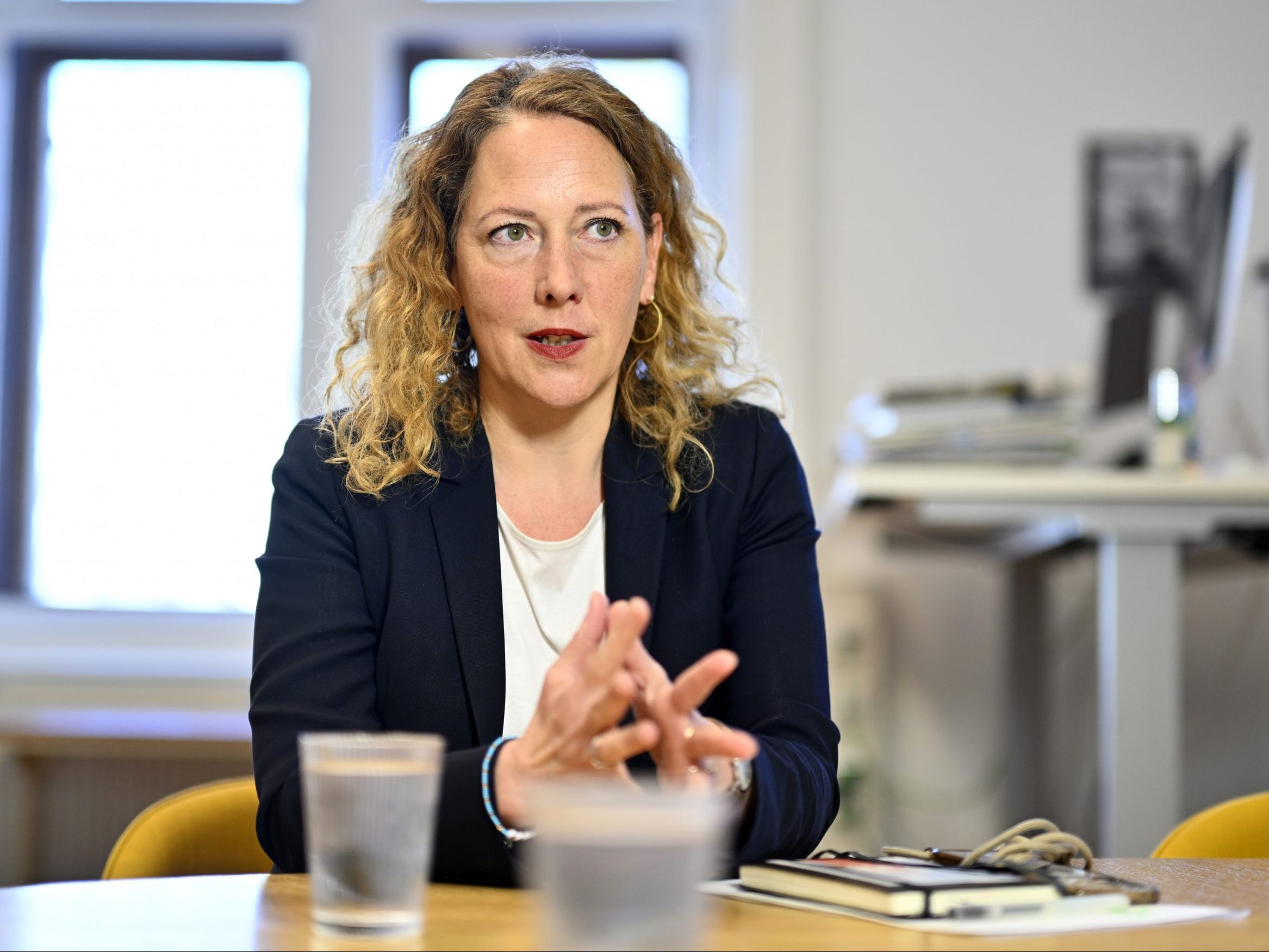It is a small consolation for Judith Pühringer of the Greens that Selma Arapović of the Neos would only achieve one percent in a direct mayoral election and thus perform even worse than she would. In a recent survey by the news magazine "News," she is shown at five percent. Incumbent Michael Ludwig (SPÖ) is better positioned with 54 percent, as well as Dominik Nepp (FPÖ) with 22 percent, Karl Mahrer (ÖVP) with ten percent, and even former FPÖ leader Heinz-Christian Strache, who wants to try again with his own list, with six percent.
For Judith Pühringer and the Greens, this is a poor showing: Neos woman Selma Arapović stepped in at short notice for her party leader Christoph Wiederkehr, who moved to the federal government as Minister of Education; it is no surprise that she is unknown to most people and therefore would hardly be directly elected by anyone. However, it is different for Pühringer: Four and a half years ago, she became an executive city councilor, and three and a half years ago, she became a Green spokesperson together with Peter Kraus. It is remarkable that not more voters want her to become mayor.
However, it is no wonder: Pühringer has never set a topic, she has never polarized. She acts professionally and performs accordingly in a ZIB2 live interview, but nothing sticks with the viewers. In other words: She creates no opponents, but also no noticeable fan base. This is the worst thing that can happen to a politician.
Thus, no success can be achieved. On the contrary: According to the "News" survey, the Greens are at eleven percent a good one and a half weeks before the municipal council election on April 27. This is about four percentage points less than in the autumn 2020 election – and would be the worst municipal council election result for the party in more than a quarter of a century. They last achieved less in 1996 with eight percent.
How is this possible? This is also explainable: Should they really lose votes, it would be part of a series of election defeats they have been experiencing for some time. They stand for the important issue of climate protection, but can attract less support than ever. Firstly: As a governing party at the federal level, they have disappointed more of their own people than they have convinced. Secondly: They have done this with part of their own supporters, for example, with their approval of the discontinuation of the "Wiener Zeitung," the introduction of the COVID-19 vaccination mandate, and the failure to prevent deportations. Thirdly: There are currently so many other crises besides the climate one that they can no longer score big with it.
Fourthly: Above all, the Greens are being squeezed. Namely between the SPÖ and the Neos. With Andreas Babler at the head of the federal party, the Social Democrats are also appealing to their clientele, and with Michael Ludwig as mayor, the Reds in Vienna are doing hardly less. He is calming traffic in the city and making the Lobau tunnel a forgotten issue or only seriously addressing it after the election.
The Neos, in turn, are currently on a roll: They could achieve a similar share of the vote as the Greens in the Vienna election, starting from seven and a half percent in 2000, despite a largely unknown top candidate. They are credited with having just taken on government responsibility at the federal level with Wiederkehr and Foreign Minister Beate Meinl-Reisinger. This, in turn, "must" come at the expense of the Greens: They live, among other things, from swing voters who either vote green or pink – and now tend more towards the latter.
Johannes Huber runs the blog dieSubstanz.at – Analyses and Backgrounds on Politics
This article has been automatically translated, read the original article here.






